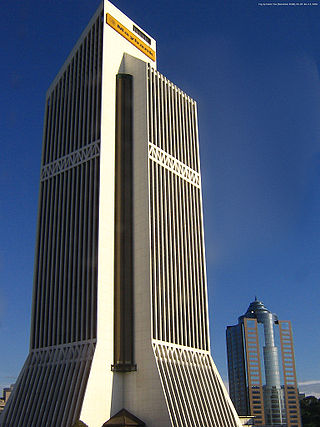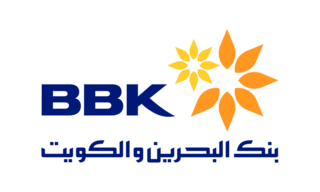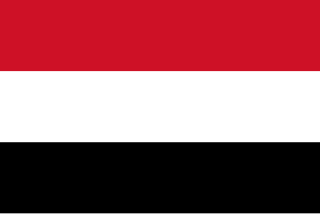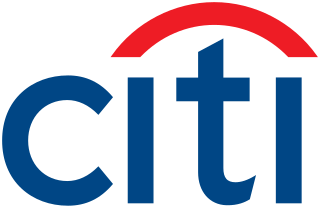
The economy of Bahrain is heavily dependent upon oil and gas. The Bahraini Dinar is the second-highest-valued currency unit in the world. Since the late 20th century, Bahrain has heavily invested in the banking and tourism sectors. The country's capital, Manama is home to many large financial structures. Bahrain's finance industry is very successful. In 2008, Bahrain was named the world's fastest growing financial center by the City of London's Global Financial Centres Index. Bahrain's banking and financial services sector, particularly Islamic banking, have benefited from the regional boom driven by demand for oil. Petroleum is Bahrain's most exported product, accounting for 60% of export receipts, 70% of government revenues, and 11% of GDP. Aluminium is the second most exported product, followed by finance and construction materials.

The Cooperation Council for the Arab States of the Gulf, also known as the Gulf Cooperation Council, is a regional, intergovernmental, political, and economic union comprising Bahrain, Kuwait, Oman, Qatar, Saudi Arabia, and the United Arab Emirates. The council's main headquarters is located in Riyadh, the capital of Saudi Arabia. The Charter of the GCC was signed on 25 May 1981, formally establishing the institution.

Malayan Banking Berhad is a Malaysian universal bank, with key operating "home markets" of Malaysia, Singapore, and Indonesia. According to the 2020 Brand Finance report, Maybank is Malaysia's most valuable bank brand, the fourth-top brand amongst the Asean countries and ranked 70th among the world’s most valuable bank brands.

The House of Khalifa is the ruling family of the Kingdom of Bahrain. The Al Khalifas profess Sunni Islam and belong to the Anizah tribe, some members of this tribe joined the Utub alliance which migrated from Central Arabia to Kuwait, then ruled all of Qatar, more specifically Al Zubarah, which they built and ruled over before settling in Bahrain in the early 17th century. The current head of the family is Hamad bin Isa Al Khalifa, who became the Emir of Bahrain in 1999 and proclaimed himself King of Bahrain in 2002, in fact becoming a constitutional monarch.

The Middle East and North Africa is a geographic region whose countries are often referred to by the acronym MENA.

The Bank of Bahrain and Kuwait (BBK) was established on 16 March 1971 in both the Kingdom of Bahrain and the State of Kuwait. Its shareholders consist of the general public, the government of Bahrain, banks and investment companies in Kuwait. BBK engages in the provision of various services and banking products throughout its branches in Bahrain, Kuwait and India as well as its representative office in Dubai, United Arab Emirates.

Shamil Bank was a Bahrain-based Islamic retail bank licensed and regulated by the Central Bank of Bahrain, with commercial and investment banking activities. It has grown steadily to become one of Bahrain's leading financial institutions.

Al-Qaeda in the Arabian Peninsula, abbreviated as AQAP, also known as Ansar al-Sharia in Yemen, is a Sunni Islamist insurgent group, which is part of the al-Qaeda network and primarily active in Yemen and Saudi Arabia. It is considered the most active of al-Qaeda's branches that emerged after the weakening of central leadership.

The Benefit Company (TBC) is the local switch in the Kingdom of Bahrain handling ATM and POS transactions among other services. Established in 1997 with a special license from the Central Bank of Bahrain as "Provider of Ancillary Services to the Financial Sector", it is the only financial network of its kind in the country.

The Yemeni Congregation for Reform, frequently called al-Islah, is a Yemeni Sunni Islamist movement established in 1990 by Abdullah ibn Husayn al-Ahmar, Ali Mohsen al-Ahmar, Abdul Majeed al-Zindani, with Ali Saleh's blessing. The first article of Islah basic law defines it as "a popular political organization that seeks reform of all aspects of life on the basis of Islamic principles and teachings".
Ahli United Bank is a regional bank based in Bahrain. Its head office is situated at Manama and is the largest bank in Bahrain. It is present in 8 countries in the Middle East and United Kingdom. Ahli United bank's ordinary shares are listed on Bahrain Stock Exchange since August 2000 and the Kuwait Stock Exchange since June 2006.
The Ya-Ali is an air-launched cruise missile (ALCM) built by Iran. The missile was first unveiled on 11 May 2014 when Iranian leader Grand Ayatollah Ali Khamenei visited the Aerospace Force of the Army of the Guardians of the Islamic Revolution. According to Janes Defence, the missile has a jet engine inlet and possibly uses a version of the Toloue-4 turbojet Iran produces for its longer-range anti-ship missiles and it is reported to have a range of 700 km. On February 7, 2015, Iran's Deputy Defense Minister Mohammad Eslami announced that the missile could previously be launched from only Mirage type fighter planes but it can now be launched from every fighter plane that Iran owns. It is named after a Shi'i religious expression beseeching imam Ali. As an ALCM, the Ya-Ali is distinct from the ground launched cruise missiles (GLCMs) in the Houthi inventory. According to Jane's Defense Weekly, the Houthis may have used a Quds 1 GLCM in the Abha International Airport attack on 12 June 2019. This airport in southwestern Saudi Arabia is less than 200 km from the Yemeni border. The Iranian Ya-Ali has a much longer range due to being imparted with much more kinetic and potential energy when released from a fighter aircraft such as the Mirage type. The Houthis have no fighter aircraft in their inventory.

This page details the match results and statistics of the Yemen national football team.

Iran and Saudi Arabia are engaged in an ongoing struggle for influence in the Middle East and other regions of the Muslim world. The two countries have provided varying degrees of support to opposing sides in nearby conflicts, including the civil wars in Syria and Yemen; and disputes in Bahrain, Lebanon, Qatar, and Iraq. The struggle also extends to disputes or broader competition in other countries globally including in West, North and East Africa, South, Central, Southeast Asia, the Balkans, and the Caucasus.

The Islamic State – Yemen Province is a branch of the militant Islamist group Islamic State (IS), active in Yemen. IS announced the group's formation on 13 November 2014.
Terrorism in the United Arab Emirates describes the terrorist attacks in the United Arab Emirates, as well as steps taken by the Emirati government to counter the threat of terrorism. Although terrorist attacks are rare, the UAE has been listed as a place used by investors to raise funds to support militants in Afghanistan, Pakistan, and the financing of the September 11 attacks. Businesses based in the UAE have been implicated in the funding of the Taliban and the Haqqani network. In the 72nd session of the UN General assembly in New York, UAE foreign minister Abdullah bin Zayed Al Nahyan affirmed the United Arab Emirates policy of zero tolerance towards terrorism financing.

Citibank N.A., Kingdom of Bahrain commonly known as Citibank Bahrain, is a franchise subsidiary of Citigroup, a multinational financial services corporation headquartered in New York City, United States. Citi Bahrain is connected by a network spanning 98 markets across the world. Citibank Bahrain also serves as the regional phone support call center for Citibank United Arab Emirates and Bahrain retail banking clients. The markets operations hub for Middle East and North Africa is also based out of Citibank Bahrain.

The Church of Jesus Christ of Latter-day Saints in Bahrain refers to the Church of Jesus Christ of Latter-day Saints and its members in Bahrain. Bahrain is headquarters of the Bahrain Stake which encompasses Bahrain, Kuwait, Saudi Arabia, and Yemen. In 2022, there were 252 members in the Bahrain Ward, the only congregation in the country. The Kuwait Ward, part of the Bahrain Stake, had 375 members. The LDS Church does not release membership figures in Saudi Arabia or Yemen due to lack of official recognition.














